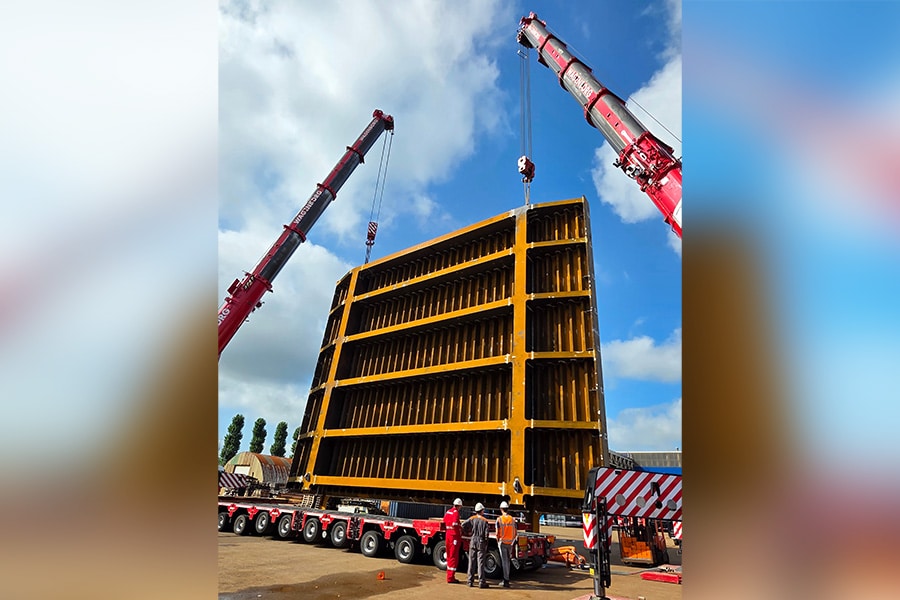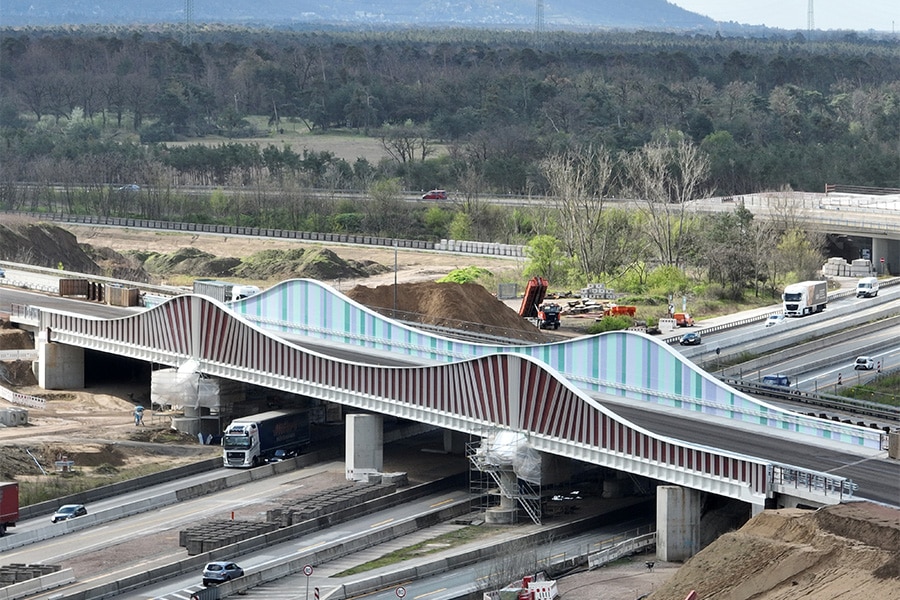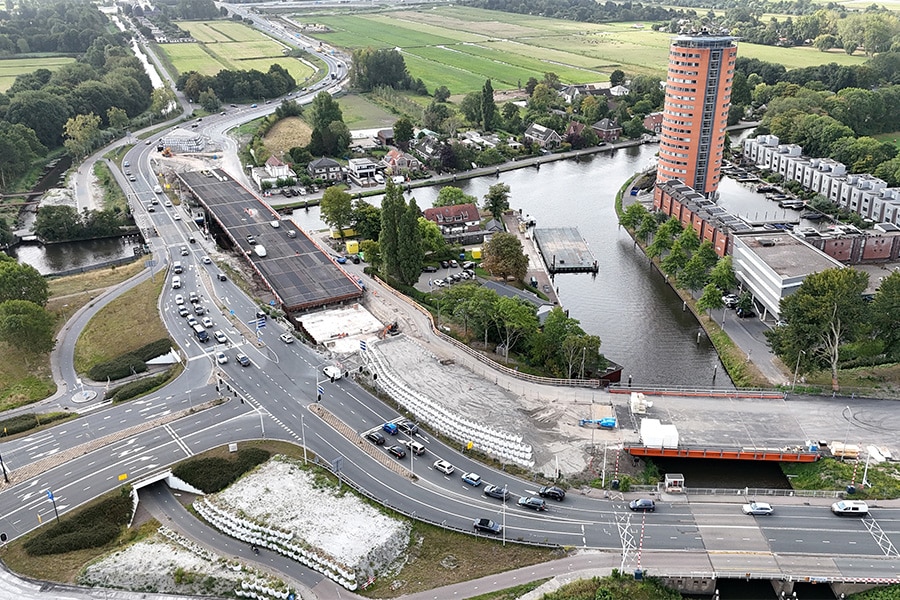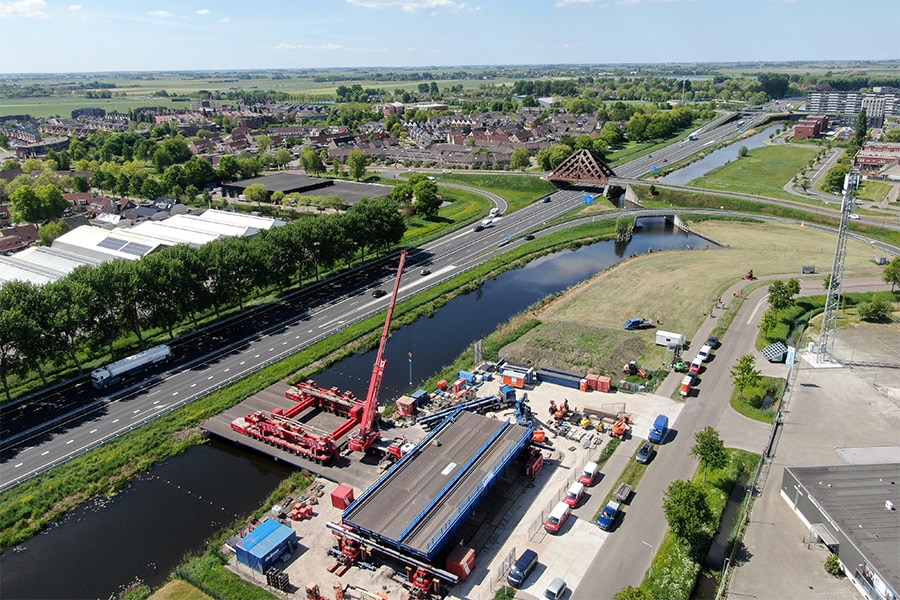
Custom steel for bored tunnel RijnlandRoute
After years of preparation and discussion, construction of the RijnlandRoute finally started in August 2017. The RijnlandRoute is intended to improve the accessibility and livability of the Leiden region and is expected to be completed in 2022. The construction of a bored tunnel (N434) with a length of 2.5 kilometers is an important part of this project. De Boer Staal and De Boer Snijbedrijf are suppliers to the RijnlandRoute.
Challenging mega-project
Before the drilling of the tunnel can begin, all kinds of preliminary foundation work must be carried out. For example, sheet pile walls were installed at the tunnel shafts and anchor piles were vibrated into the ground.
"The anchor piles provide anchorage for the floor of the cofferdam, and to hold the sheet piles in place, outrigger frames have been installed. These outrigger frames consist of tubes, profiles, tie anchors and various cut-to-size steel parts (auxiliary steel)," says René Wentzel, commercial manager of De Boer Staal and De Boer Snijbedrijf.
Steel anchor plates and outrigger seats
"We specialize in cutting and machining steel and stock a large inventory of sheet metal and profiles in various sizes, grades and thicknesses. We are flexible and can deliver quickly. For the RijnlandRoute, we cut to size from steel S355J2+N, 60-ton anchor plates and plates for outrigger seats."
Special tunnel boring machine
Construction of the tunnel started in June 2019. The tunnel boring machine TBM has a drill head with a diameter of almost 11 meters and digs and builds the tunnel at the same time. After about 6 months, the first tunnel tube will be finished and drilling of the second tunnel tube will begin. So the slogan 'YOU BUILD WE SUPPLY' also applies to civil engineering.




